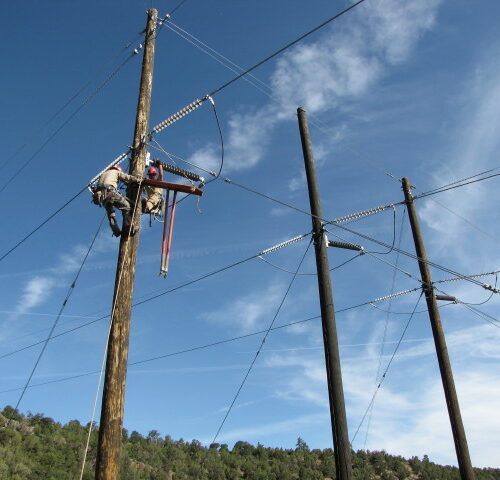Electric and Magnetic fields (EMF) pose an important issue for Holy Cross Energy (HCE) and its consumers. These fields exist everywhere in our environment and are both natural and manmade. In addition to electric power lines, sources of EMF include: building wiring, electric appliances, computers, communications facilities and electronic devices.
Over the past three decades extensive research has been conducted by utilities, government agencies and independent researchers to investigate possible effects of EMF on plants, animals, and human health. This body of research includes a broad range of basic science and epidemiologic studies as well as exposure assessment and field management investigations.
Numerous independent scientific institutions, health organizations and governmental bodies have carefully evaluated the research to assess whether these fields could have adverse implications for human health. These include independent panels convened by Oak Ridge Associated Universities, The National Academy of Sciences, The World Health Organization, and the National Radiological Protection Board in the United Kingdom. In Colorado, EMF research has been considered by the Public Utilities Commission and a consortium of university scientists. To date, state, national and international organizations which have evaluated the EMF research support the conclusion that there is no convincing evidence that EMF from power lines have or can lead to public health problems.

HCE relies upon and concurs with the consensus of scientific opinion as reflected in the independent reviews of the EMF research. Therefore, in the absence of a demonstrated cause and effect relationship between EMF and human health, it is HCE’s current position that: electric shock continues to be the greatest demonstrated public health/safety concern associated with electricity and because of this it is important that:
HCE ensures that its’ facilities are constructed in accordance with the national electric safety code. The public must be cognizant of electric shock hazard and appropriate caution should be observed when near electric power lines.
HCE will continue to review new research in this area as it becomes available. HCE also supports national EMF communications programs and is committed to making information on EMF available to our members and employees. Educational materials and additional general information are available by following the World Wide Web links listed below:
www.niehs.nih.gov/health/topics/agents/emf/
The HCE office may also be contacted with further inquiries at, 970.945.5491.
HCE considers human health and safety of foremost significance, and continues to be committed to providing a safe and healthy environment for its employees and to provide safe, reliable, and economical electric energy to its customers and communities it serves. HCE will continue providing electric service in a manner consistent with all applicable laws and regulations and comply with regulatory requirements, such as the National Electric Safety Code, for construction, operation, and delivery of electricity and the Colorado Public Utility Commission’s regulations concerning the consideration of prudent avoidance in siting and designing new power lines.
Adopted: August 18, 1993
Revised: May 20, 2017